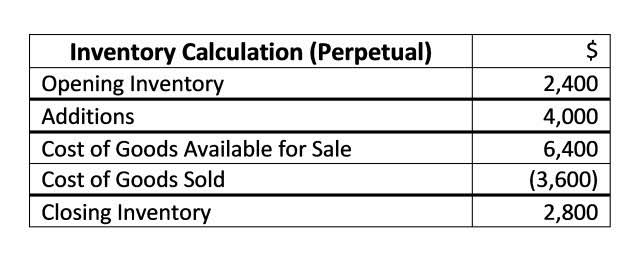
Audits enhance donor confidence and are often required by grantors, regulators, and stakeholders. In conclusion, recognizing contributed services is not only a requirement for accurate financial reporting but also a practice that brings numerous benefits to nonprofits. It promotes financial transparency, compliance, and effective resource management, ultimately supporting the organization’s mission and sustainability. In summary, nonprofit organizations recognize revenue from pledges and contributions based on certain conditions, donor-imposed restrictions, and specific accounting guidance. Adherence to these standards ensures the integrity and transparency of a nonprofit’s fixed assets financial reporting. Following these GAAP principles can help nonprofit organizations ensure their financial statements are accurate, transparent, and comply with accounting standards.
Agency Transactions and Intermediaries
By implementing these practices, non-profits can maximize the impact of their resources and contribute positively to the communities they serve. Non-profits must prioritize these obligations to ensure their continued success in fulfilling their mission. The registration process is the first step in establishing the legal status of a non-profit organization in Canada. Failure to do so can have severe consequences, jeopardizing their ability to fulfill their mission and maintain public trust.

ACCOUNTING for Everyone
- These statements organize and summarize data in consistent ways to provide different insights into your organization’s financial situation.
- The Financial Accounting Standards Board (FASB) issues the Accounting Standards Codification (ASC) 958, which provides guidelines for nonprofit entities.
- If, however, your nonprofit fails to report its finances as required by GAAP and FASB, it could lose tax-exempt status.
- While the SEC continues to oversee financial reporting for publicly traded companies, it defers standard-setting to FASB.
- Effective financial management encompasses establishing robust internal controls and meticulously budgeting for grants to ensure compliance with the stipulations set by resource providers.
- This article aims to demystify these requirements, providing a clear roadmap to navigate the complexities and ensure your nonprofit remains compliant.
Kelly possesses an extensive background in auditing nonprofit organizations, particularly those receiving federal funding. Using a standardized reporting framework, nonprofits ensure that all relevant financial data—such as donations, grants, gifts, capital purchases, and expenses—is collected and verified. What are nonprofit accounting standards, and how do organizations ensure they’re compliant? Accounting software plays a critical role in grant accounting by providing tools to track and report on grants with precision. Non-profit organizations can benefit greatly from features that enable them to record transactions on an accrual basis, which is often required by US GAAP (Generally Accepted Accounting Principles). Automation within the software simplifies repetitive tasks, such as data entry and calculation of expenses, which reduces errors and saves time.
- While both involve tracking revenues and expenses, nonprofit accounting has unique requirements—like categorizing funds as restricted or unrestricted based on donor intentions.
- When evaluating an organization’s financial performance, it is crucial to analyze both the budget and actual financial data.
- Nonprofit accounting differs from for-profit accounting as it’s all about accountability and stewardship of funds rather than profitability.
- All money should be deposited into the organization’s bank account(s), and a record should be kept of every transaction.
- This preparation can streamline cross-border ventures and improve organizational agility in a dynamic economic environment.
- In addition to having real-time visibility into budget spending and actuals, reviewing historical financial data enables your team to understand overall financial performance.
- Regular review and updates ensure that financial reporting keeps pace with evolving standards and organizational needs.
Statement of functional expenses
- Failing to closely track expenses leads to overspending, cash flow issues, or potential disruptions to your nonprofit operations.
- Establishing strong internal controls is crucial for maintaining compliance as it not only protects your organization’s assets but also enhances transparency and operational efficiency.
- For businesses and nonprofits alike, compliance with GAAP principles is crucial—investors and donors are more likely to contribute to organizations with clear, standardized, and credible financial records.
- This update affects how nonprofits disclose in-kind donations such as goods, services, and use of facilities.
- This return provides detailed information about the organization’s finances, activities, governance, and management.
Its origins date back to the 1930s, following the stock market crash of 1929, which highlighted the need for standardized financial reporting. Nonprofits are exempt from paying federal income taxes if the corporation is registered and holds 501(c)3 status. Some contributions have additional requirements for how to recognize them in your accounting system for GAAP compliance. For instance, the monetary value of in-kind gifts is recorded as both a debit and a credit to note that you Online Bookkeeping received it, but the amount of cash your organization has hasn’t changed.

Tax Considerations for Non-Profits

Familiarity with GAAP ensures financial statements are prepared consistently and comparably, providing a clear and accurate picture of the organization’s financial standing for auditors and stakeholders alike. In the world of nonprofit accounting, organizations have to follow specific rules, regulations, and tax requirements. Bookkeeping and accounting are crucial aspects to ensure financial accuracy and transparency. Audit and assurance services are vital for ensuring the credibility of a nonprofit’s financial reporting. An independent audit provides an objective assessment of the organization’s financial statements, verifying their accuracy and compliance with accounting standards.

Annual and Interim Financial Reporting
- The specific accounts used will vary based on the type of service received and its impact on the nonprofit’s operations or assets.
- But when the promise was backed up with a binding, legally enforceable document committing to the donation, the revenue was correctly recorded, Zygmunt said.
- Our Nonprofit Industry Group offers a full suite of accounting and administrative services, including implementation, training and support for Sage Intacct.
- Now that we’ve looked at the key accounting standards for nonprofits, let’s compare them to those of for-profit businesses.
- Nonprofit organizations need more timely, insightful financial reporting to make data-driven decisions to drive their mission forward.
For instance, the Ohio Association of Nonprofit Organizations (OANO) is a vital resource for staying informed about Ohio’s distinct audit thresholds and reporting requirements. Actively participating in these networks can help nonprofits remain compliant and access a community of shared knowledge. Grants can have a significant impact on a non-profit’s net assets, GAAP for Nonprofits which represent the organization’s financial health at a specific point in time.
